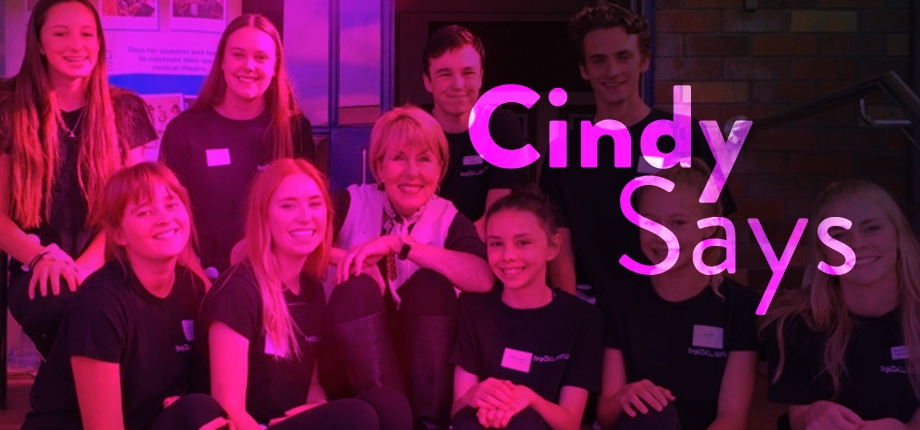Cindy Says: When to offer Advice and when to stay in the Wings

Cindy Says: When to offer Advice and when to stay in the Wings
I just returned from the GIA Fall Institute where I trained an enthusiastic group of teachers on best practices for putting on a musical. I love working with a group made up of all different experiences that have never met before and collaborate to create something new. Even though they've just learned brand new concepts, nothing is going to stop them from working together and making it happen. You know that scenario well, right? Needless to say, there are many newbies who want advice, from what show to select, to if they should sell tickets, to how to cast fairly. This jogged my brain about one of the topics we deal with continually with students, parents and colleagues: when do we offer advice and when do we zip it?
Have you ever been encouraged to attend a production directed by a good friend and immediately noticed areas for improvement? Watched your well-prepared dress rehearsal go belly up? Met with an enthusiastic parent who had built 24 headpieces in which you knew your students cannot safely perform in?
Here are a few thoughts that may help to deliver your brilliant suggestions:
• Offering advice too early erodes the relationship and takes away your credibility. (I'd like to share an idea on a different blocking for your character, what do you think?)
• Timing, like in theater, is everything. When you offer suggestions too early, people ignore you. (Your first-grade elephants in The Jungle Book Kids are not ready to perform alone in front of the cast)
• Give your upset persons a space to rant. How many times has a distraught parent contacted you after the cast list has gone up? The best way to help is to enable what they want specifically for their child and what the production as a whole needs.
Want: to vent to you, as if they can change how they feel if they just talk about it.
Need: to work through it and let it go. Which you can help them do by remaining calm. Tell them you are happy to listen to their concerns about their child. Once they've gotten it all out, you can help them move on by sharing your casting plan that showcases the best in all students.
• Avoid judgment. As you know, this is a large part of what we all do.
When a student comes to you with an issue, odds are they already feel vulnerable. They're trusting you to hear them out without being judgmental or condescending. Rather responding negatively with, "You should have taken a quicker tempo," or "Why didn't you block the entire number?", realize what's done is done, and focus on what they can do or change right now. Try something like, "It might help to think about…." Then, offer your support along the path.
• Make it a collaboration. It can feel gratifying to figure out what seems like the answer and then deliver it like a monologue. But this can also come off as egotistical, which probably isn't your intention. Try, "I don't have all the answers, but I'd love to help you figure out what's right for you." Whenever you've talked for a few minutes, bring it back to them. "What are your thoughts about that?"
• Don't make promises. Yes, we do deal with dreamers in our field.
Even if you've been there before, you can't guarantee any specific outcome. "I am sure you will be accepted in one of these top three musical theatre programs, your resume and experience are great" may not be the best way to encourage your student. Keep expectations realistic. Help students weigh possible outcomes, both positive and negative, so they are prepared for any outcome. "Your experience may open doors to expand your goals and find a gem of a program in a smaller school."
• Say it from the heart …you are an artist. Sometimes it plays better to be there with kindness instead of words. - CR

























